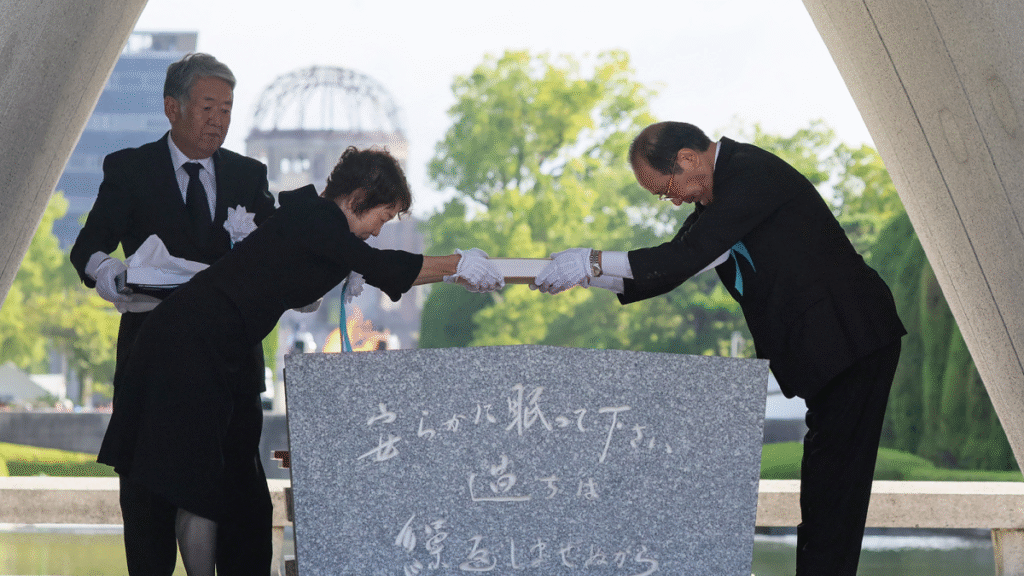Background and Significance of the Event
On Wednesday (local time), Japan observed a minute of silence to mark the 80th anniversary of the atomic bombing in Hiroshima, reminding the world of the horrors caused by nuclear weapons amid rising tensions between nuclear powers, the United States and Russia.
At 08:15 local time, a minute of silence was held in Hiroshima, the exact hour when the U.S. B-29 bomber Enola Gay dropped the “Little Boy” atomic bomb on August 6, 1945. The devastating explosion and subsequent radiation resulted in approximately 140,000 deaths.
Three days later, another atomic bomb was dropped on Nagasaki on August 9, killing around 74,000 people. Japan surrendered on August 15, signaling the end of World War II.
Speeches and Relevance
Hiroshima’s mayor, Kazumi Matsui, warned of “an accelerating trend towards militarization worldwide,” referencing Russia’s invasion of Ukraine and ongoing conflicts in the Middle East.
In contrast, Japan’s Prime Minister Shigeru Ishiba emphasized that his country has the mission “to lead the way towards a nuclear-weapon-free world.”
Personal Stories and Global Impact
At the ceremony, representatives from around 120 countries and regions participated, including Taiwanese and Palestinian delegates for the first time.
Yoshie Yokoyama, a 96-year-old survivor attending in a wheelchair with her grandson, shared the impact of the bombing on her family: “My grandfather died shortly after the bombing, and my parents succumbed to cancer. My in-laws also passed away, so my husband never had the chance to meet them after he returned from the war.”
Toshiyuki Mimaki, co-president of Nihon Hidankyo (a group of atomic bomb survivors awarded the 2024 Nobel Peace Prize), stressed the importance of global gatherings in Hiroshima, saying, “As wars continue worldwide, it’s crucial for many people to come together in this city affected by the atomic bomb.”
Calls for Nuclear Disarmament
Nihon Hidankyo urges countries to take action for nuclear disarmament, citing testimonies from Hiroshima and Nagasaki survivors known as “hibakusha.”
“I hope that foreign representatives visit the Peace Memorial Museum and understand what happened,” explained Mimaki.
Pope Francis echoed this sentiment in a statement, saying that “in our era of growing global tensions and conflicts,” Hiroshima and Nagasaki serve as “living reminders of the profound horrors caused by nuclear weapons.”
UN Secretary-General António Guterres warned that “the same weapons that caused such devastation in Hiroshima and Nagasaki are once again being treated as tools of coercion.”
“Reloj del Apocalipsis”
However, the Nuclear Threat Initiative’s “Doomsday Clock” moved to 89 seconds to midnight in January, the closest it has ever been since its inception 78 years ago.
The clock, symbolizing humanity’s proximity to destruction, reached 90 seconds to midnight when Russia invaded Ukraine in 2022.
Russia and the United States possess around 90% of the world’s 12,000 nuclear warheads, according to the Stockholm International Peace Research Institute (SIPRI).
The SIPRI issued a warning in June about a new “nuclear arms race” worldwide.
U.S. President Donald Trump recently stated that he had ordered the movement of two nuclear submarines following a dispute with former Russian President Dmitry Medvedev on social media.






